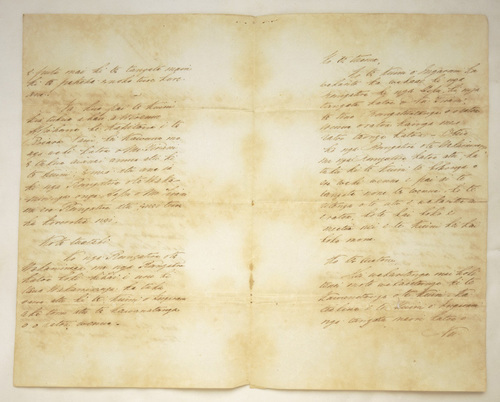The Influence of Whaling on Early New Zealand Economy
Long before the gold rushes reshaped the South Island or pastoralism dominated the plains, the seas surrounding Aotearoa New Zealand were the site of the nation’s first significant export industry: whaling. While Māori had long utilized stranded whales (pakake), the arrival of European and American vessels in the late 18th century introduced systematic, commercial hunting. Driven by intense international demand for whale products, this industry profoundly shaped New Zealand’s early economic trajectory, fostering complex interactions between Pākehā newcomers and tangata whenua, and laying the groundwork for permanent European settlement.
The lure of leviathans: Global demand and the rise of a New Zealand industry
The pursuit of whales in the South Pacific was fuelled by a voracious global appetite for their derived products. Whale oil, rendered from blubber, was the premier illuminant and industrial lubricant of its time, lighting the burgeoning cities of Europe and America and greasing the wheels of the Industrial Revolution. As French historian sources note, oil from New Zealand whales literally lit the lamps of Parisian streets. Baleen, the flexible plates found in the mouths of certain whale species, functioned like an early plastic, essential for items like corsets, umbrella ribs, and buggy whips. Even ambergris, a rare intestinal secretion, commanded high prices as a fixative in luxury perfumes. This immense economic potential drew fleets from afar. Following the exploratory voyage of the William and Ann under Eber Bunker to Doubtless Bay in 1791, American, British, French, and Australian vessels increasingly frequented New Zealand waters, recognised not only for their rich whale populations, particularly the Southern Right Whale (Tohorā), but also for their safe anchorages and opportunities to replenish wood, water, and food supplies, as documented in Te Ara – The Encyclopedia of New Zealand’s overview of whaling.
From ship to shore: Establishing a coastal economy
Initially, whaling was predominantly pelagic, conducted entirely from ships that roamed vast stretches of ocean. However, the late 1820s witnessed a pivotal shift towards shore-based whaling. This involved establishing permanent or semi-permanent stations on land, where crews could process whales more efficiently and live for extended periods. The first such station is often cited as being established by John Guard at Te Awaiti in the Marlborough Sounds around 1827, followed quickly by others, like Peter Williams in Preservation Inlet and the first formal station in Cloudy Bay in 1828. The establishment of these stations, such as those on Banks Peninsula during the 1830s, marked the true beginnings of European settlement in many coastal areas. By the early 1840s, the industry reached its zenith, with estimates suggesting around 30 stations employing upwards of 1,000 men, primarily targeting the slow-moving Right Whales during their coastal migrations, as detailed by envirohistory NZ. These shore stations required land, timber for building and fuel, food supplies, and labour, creating localised economic hubs along the coastline.
Interwoven destinies: Māori engagement and cultural exchange
The success of shore-based whaling was inextricably linked to interactions with Māori communities. Unlike the transient deep-sea whalers, shore station operators needed to negotiate access to land, timber, and fresh provisions. This necessity fostered complex relationships built on trade and mutual, albeit sometimes unequal, benefit. Māori quickly recognised the value of European goods offered in exchange – metal tools, textiles, tobacco, and, significantly, muskets (ngutu pārera), which had a profound impact on inter-tribal dynamics. As outlined in research from Massey University on intermarriage and whaling, whalers provided Māori with access to these coveted commodities, drawing them into the nascent global capitalist economy. Māori supplied potatoes, pigs, flax (harakeke), and labour, becoming essential partners in the whaling enterprise. Kororareka (Russell) in the Bay of Islands became a key provisioning port, a bustling, often lawless centre where these exchanges occurred, as noted by Britannica’s history of New Zealand.
Kinship and commerce: The role of mixed families
The establishment of shore stations led to more sustained contact and, inevitably, the formation of relationships and families between whalers (often referred to as Pākehā-Māori) and Māori women. These unions were frequently strategic as well as personal. As explored in the context of the ‘Wellerman’ shanty’s historical roots at the University of Waikato, marriage to women of mana often secured access to land under Māori customary tenure (kaitiakitanga) and ensured the cooperation of the local hapū. Māori women played crucial economic roles, managing households, cultivating gardens that supplied the stations, preparing flax for trade, and acting as cultural intermediaries. Their contributions were vital to the viability of many stations. Furthermore, Māori men found employment not only as shore hands but also as skilled boat crew members, valued for their navigational knowledge and prowess on the water. These mixed communities formed the bedrock of many early coastal settlements.
Innovation and decline: The industry’s evolution and eventual end
As the 19th century progressed, the whaling industry continued to evolve. Figures like the Perano family, who established operations in Tory Channel in 1911, introduced significant technological advancements. Joe Perano is credited with building New Zealand’s first powered whale chaser and pioneering the use of explosive harpoons, dramatically increasing hunting efficiency. Despite these innovations, the industry faced an insurmountable challenge: the depletion of its primary resource. Decades of intensive hunting, particularly targeting the vulnerable Southern Right Whales during calving season, led to a dramatic decline in whale populations by the mid-1840s. While the industry persisted, focusing on other species like Humpbacks, its peak had passed. The final chapter of New Zealand-based whaling closed on December 21, 1964, when the Perano company harpooned its last whale off the Kaikōura coast, an event chronicled by NZHistory. As pointed out in RNZ discussions on Cook Strait whaling history, this end was driven primarily by economic unsustainability due to the scarcity of whales, rather than widespread conservationist sentiment, which gained momentum later.
Echoes in the landscape: Whaling’s enduring economic and social legacy
Though whaling eventually ceased, its influence on New Zealand’s economic and social fabric remains undeniable. It was, alongside sealing and timber extraction, one of the very first industries connecting New Zealand to the global marketplace, attracting capital, ships, and settlers. While perhaps a relatively small component of the global commodity trade, its impact within New Zealand was transformative. It spurred the growth of coastal settlements, many of which endure today, such as Russell, Bluff, Riverton, Kaikōura, and Waikouaiti, often founded upon the infrastructure and communities established during the whaling era. Many former whalers transitioned into farming, trading, and fishing, contributing further to colonial development, as noted by Early NZ History. Crucially, the whaling era forged the first sustained, intimate, and economically interdependent relationships between Māori and Pākehā, leaving a complex legacy woven into the whakapapa of many New Zealanders and forever altering the economic landscape of Aotearoa.



